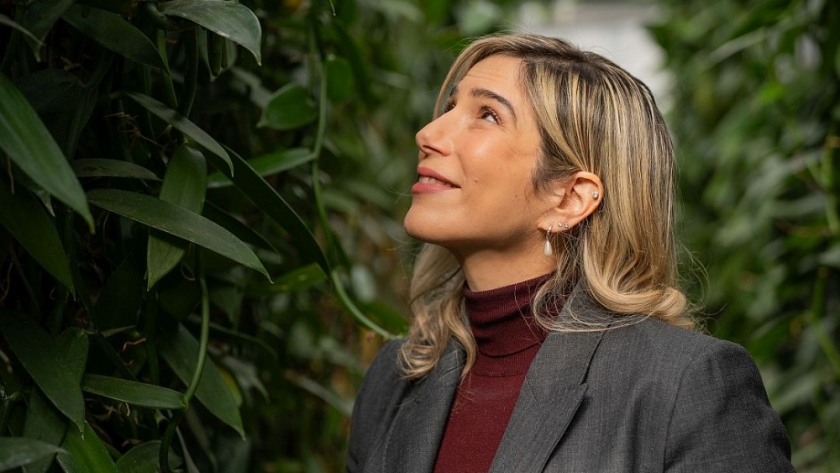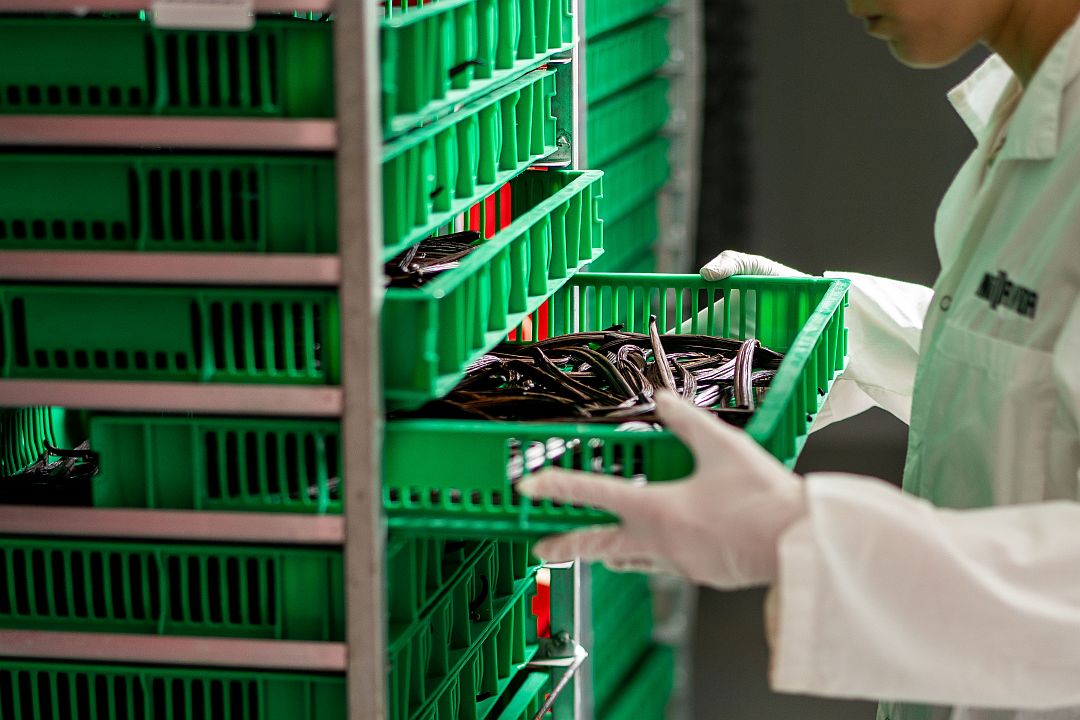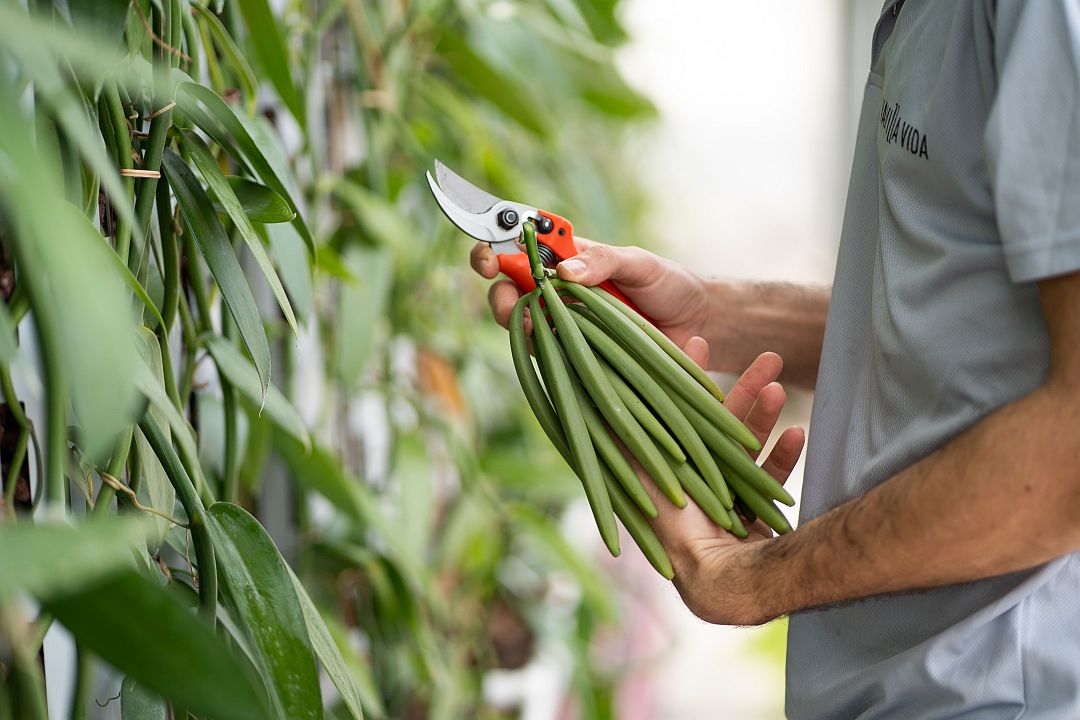
By Agroempresario.com
Vanilla Vida, an Israeli agri-foodtech startup revolutionizing the vanilla industry, has announced the establishment of a 10-hectare integrated cultivation and curing facility in Uganda. The project represents a pivotal step in the company’s mission to stabilize global vanilla supply, reduce reliance on traditional production hubs, and deliver premium-quality vanilla at scale.
With a fresh $3.5 million internal funding round led by Windare Ventures, Vanilla Vida is moving from pilot projects in Israel to full-scale operations in Africa. According to CEO Ilanit Bar-Zeev, this expansion will accelerate the commercialization of Vanilla Vida’s proprietary indoor cultivation and curing technology—systems that halve the time from planting to bloom and consistently yield higher vanillin content compared to traditional farming.

“Reliable, premium vanilla is not only possible, it’s scalable,” stated Bar-Zeev when presenting the project. Vanilla Vida’s Uganda facility is designed to secure a year-round supply of high-quality vanilla beans, serving both local and international buyers.
The facility will operate under a hybrid model: initially curing beans sourced from local Ugandan farmers, and later transitioning to a mix of partner-grown and Vanilla Vida’s own indoor production as plantations mature.
The company plans its first planting at the Uganda site in early 2026, with meaningful harvests projected around 2029. Meanwhile, by late 2026, the curing facility will already be operational, processing both local beans and Vanilla Vida’s indoor harvests.
Chairman Yoni Glickman added: “Uganda offers the ideal conditions and partnerships to showcase our ability to deliver stable, sustainable vanilla at scale.”
Vanilla Vida has ambitious goals: to expand operations globally across ~60 hectares, with the aim of supplying 10% of the world’s natural vanilla. Beyond Israel and Uganda, the startup is in advanced partnership discussions in two additional countries.
The model is clear—Vanilla Vida supplies young plants to partner farmers, who grow them under controlled protocols and then sell the beans back for curing. This approach ensures full traceability, stable supply, and consistent quality.
To date, Vanilla Vida has raised $18 million from leading investors including Windare Ventures, PeakBridge FoodSparks, Arancia International, Paneurinvest, and Oceale Investments.
Unlike companies producing “natural flavor” vanillin through bioconversion or synthetic processes, Vanilla Vida grows vanilla planifolia indoors using climate-controlled greenhouses.
This method shortens the growth cycle dramatically—plants mature in just two years instead of four or five—and cuts the curing process from six months to about three. The result: vanillin levels consistently above 3%, compared to the industry average of 1–2%.
Moreover, Vanilla Vida’s curing system allows customization of flavor profiles, enhancing chocolatey, smoky, or caramel notes based on client demands. This flexibility is particularly attractive to multinational food and beverage companies seeking consistent, premium-grade natural vanilla.
The global vanilla market is notorious for supply volatility and price swings. Today, most natural vanilla comes from Madagascar, where climate change, disease outbreaks, and supply chain disruptions create instability.
Companies have typically relied on alternatives:
In contrast, Vanilla Vida offers “real vanilla” beans, produced sustainably and with full traceability. According to Glickman, this positions the company to capture growing demand: “The market opportunity for genuine, scalable vanilla is vast. Cocoa and coffee diversified geographically over decades, but vanilla remains concentrated in one region—Madagascar. That makes it uniquely sensitive to disruption, and ripe for innovation.”

Uganda already plays a small but growing role in vanilla supply chains, and Vanilla Vida’s decision to build there reflects both favorable climate conditions and a commitment to working with local communities.
The new facility is expected to generate jobs, training opportunities, and economic benefits for local farmers who will supply beans under Vanilla Vida’s curing protocols. Over time, the partnership could help position Uganda as a key player in global vanilla exports, complementing Israel’s R&D-driven production.
Vanilla Vida’s controlled environment agriculture (CEA) platform integrates data-driven cultivation, precise temperature and humidity management, and optimized curing processes.
This convergence of agtech and foodtech offers a resilient supply chain alternative at a time when food security and sustainability are global priorities.
Vanilla Vida’s upcoming milestones include:
Sales of Vanilla Vida’s premium vanilla have already tripled year-on-year since 2022, priced at ~1.5× the market average—a sign that buyers are willing to pay for reliability, traceability, and superior flavor.
As global food companies seek to secure sustainable, high-quality vanilla supply chains, Vanilla Vida is positioned as a game-changer.
